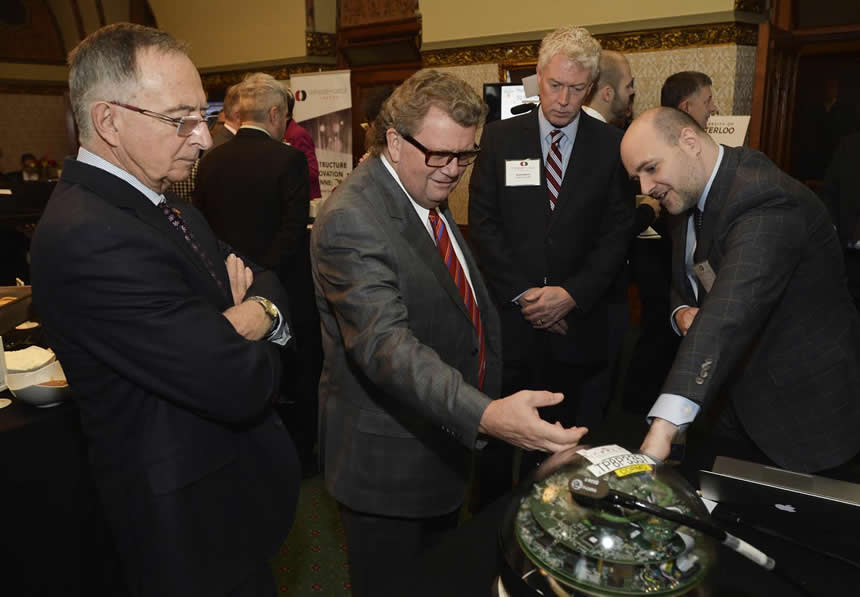
Hon. Kelvin Kenneth Ogilvie (Senator, chair of the Senate committee for Social Affairs, Science and Technology), Hon. Ed Holder (Minister of State - Science and Technology) and Mark Dietrich (President and CEO Compute Canada-Calcul Canada) learn about an IceCube detector module from University of Alberta Associate Professor Darren Grant. Photo supplied by Compute Canada/Calcul Canada.
(Edmonton/Ottawa) University of Alberta physicist Darren Grant recently visited Parliament Hill to give presentations about his group's groundbreaking neutrino research in the Antarctic.
Grant, an associate professor in the Department of Physics, is the Canadian leader in the international collaboration conducting the IceCube experiment. Sensors embedded in Antarctic ice sent data to a University of Alberta-situated hub made possible by Compute Canada.
Following the morning event at the Hill, at the headquarters of NSERC (Canada's Natural Sciences and Engineering Research Council) Grant spoke about how crucial this massive computing power was in confirming that IceCube had detected high-energy neutrinos of extraterrestrial origin.
Grant's talk was part of the Compute Canada event announcing $71 million of computing resource allocations in the 2015 competition and the national launch of Compute Canada's Globus Portal, a high-performance file-transfer service designed for Canadian researchers.
"Through Compute Canada, investment in key high performance computing infrastructure has become absolutely essential to success in our research," says Grant.
The University of Alberta computer cluster that processed the IceCube data, called Jasper, is managed by WestGrid, one of six regional high-performance computing consortia that operate and support Compute Canada's national platform of supercomputing resources. Last year, Compute Canada allocated computing resources with a market value of more than $975,000 to IceCube.
While the Compute Canada event focused on the importance of investing in computing infrastructure, senators and members of parliament were impressed with the science itself.
"I think they enjoyed the conversations at Parliament Hill as well as the talk at NSERC headquarters," Grant said. "I know I certainly really enjoyed the opportunity to speak with these groups; it is always fantastic to speak with people who are excited about science."